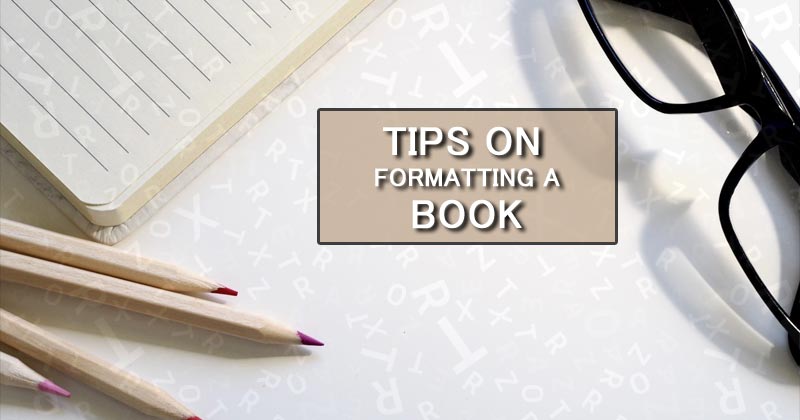
Imagine you heard about a book making waves about its story around you. So, you decide to give it a try. But you discover that the book you want to read is a very lengthy one and you are not sure anymore to go ahead. So in such a case a smart reader will decide to check out the summary of the book. Once the reader goes through the summary it will help him to decide to go further ahead and read the whole book or not. So, for an author or the publisher, the summary plays a vital role in directing the interest of readers, especially the new ones. Now one will think that “How to write a book summary”?
Before we go in further details, let’s talk about what is a book summary and why it’s important:
A summary is a short writing which reflects the crux and theme of the work written by the author along with the individualistic reflection of the personality of the author. So, inshort it’s an insight of the elaborate work in a condensed form and helps in establishing the connection between the book and the reader.
A good summary never gives the hidden exciting points, in fact it creates more curiosity in the mind of the reader to find out what’s inside the book. A good summary should never be opinionated about any person, caste, religion, belief , gender etc. It’s a synopsis between the book and the reader.
Benefits of writing a book summary:
There are many benefits of writing a book summary, the foremost is that it helps you in memorizing the content of the book. This includes important happenings, characters’ dialogues/quotes , important dates and places mentioned in the book etc. All these things help in creating a reference pool which can be redirected when needed by the reader and /or summarizer.
Secondly, a book summary always helps in finding similar genres of work. So that whenever you need to compare some facts or other information, you know where to find what. For example, in history books names and dates are very crucial and if you want to connect two books together with an important date, place or name mentioned in both books, you can easily do it.
It also helps in segregating the authors’ work too and will help you in remembering which author masters in which genre like Mills and Boons means romance, Shakespeare is known for his comedies, tragedies and historical stories and so on.

Last but not the least, writing book summaries helps in improving writing skills too. As it helps in building the vocabulary and learning new ways of using a word or getting familiar with synonyms and antonyms also. It also helps in using books as a reference point too in so many other situations especially in thesis, scientific writings, historical books, etc.
How to write an effective book summary?
Well for that there are certain points which one has to remember to put out a captivating and engaging summary. These are as follows:
1. The summary is the mirror of the Book
Well as we say that summary is the mirror of the book. It means that it should reflect the main idea of the book and which author wants to give away to the audience / reader. Another important thing to remember is that, keep the summary short always. Summary also helps in bringing new readers for the author/ publishings houses. For example, during marketing and promotions authors/ book bloggers in different events read out their summary to the audience so that they can get a glimpse of the inside. This can be done during live shows, or on digital mediums like instagram, facebook, twitter etc as a part of promotions and marketing or as an individual choice by the author too.
2. The summary should be captivating and engaging
Well, just writing a summary is not enough. It is very crucial that the summary should be able to create a longing for the reader to read the whole book. Although it’s a tough job to do, as one has to condensify the whole book, in just a few words it needs a great amount of precision too. So, that it can create an impact on the reader’s mind. That is why the summary needs to be captivating and engaging to build the reader’s mind to go ahead and read the book.
3. The summary should not be long
This is a universal fact that a summary needs to be short. But in some genres it can be one – two pages long too. Like in Historical stories, fictions with multiple volumes (each volume may have separate summary but interconnected to each other to maintain the continuity), scientific journals, etc. Any good summary is characterized by the flow of the summary. A free flowing, well written, easy to read and understand summary always helps in building up the curiosity of the reader or in fact at times of a non reader too.
4. The summary should be free from any prejudice
A good summary is always free from any prejudice as it is meant to reflect the thought and crux irrespective of the view of the author and the society towards the topic. Books on social causes are a prime example of this. This helps in creating a pool of views for people from different backgrounds. Any person who is writing a summary should remember that he/she is writing the thoughts of the book in brief in their words but not their opinion on the work.
Pros and cons of writing a book summary
As positive as it may sound but for some even book summaries are not justified. There are few reasons that why some people think that:
1. The summary is a brief view of the whole book and thus most of the time all important points cannot be written in the summary. Sometimes only one main point is highlighted in the summary. The person who is writing the summary has its own way of thinking and leaves points behind which are not important in his view point , which in the story / book can prove to be a game changer.

2. Some books are very long so they have summaries chapter wise also. In such a case you might not feel connected with one or two chapters and try to skip those as the summary is not able to create that zing to go ahead and read the chapter further. So in such books, the continuity of the book is broken and you may miss some important things in those chapters. So, sometimes a summary can do reverse work also, which is not supposed to happen.
3. In some cases the author is not the summary writer, in such cases people like book bloggers or academic people (belonging to different genres like science, political, economical, history, etc) are chosen to write the summary of the book. So what they write as a summary is a reflection of their thought along with the book’s thought process. So, sometimes after reading a book, a reader feels cheated and disappointed as the book falls short in the main reading department.
4. Sometimes the summarizer gives away the whole crux in the summary itself, which in return proves to be fatal for the book and sales too.
Also Read – Tips for Writing a Good Book
Despite these cons, summary has many positive effects also which are called pros of writing a book summary. These are as follows:
1. It helps in developing instant connection between the reader and the book.
2. It helps in saving time for the reader, to go ahead and read the whole book or not.
3. It helps in segregating the genres of the different books for voracious readers and saves their time too.
4. A collection of books by a reader is the reflection of his personality and choices too. Like someone liking only suspense thrillers or romantic stories. Thus helping in referring books in the future too.
5. A book can be written in paperback format as well as in a digital format too like on Amazon’s kindle.

A book summary is a brief view of the book which can be on paper or digital format. It can be written by experts or by freshers. All it needs to do is to help the author and publisher to reach more and more audiences to become successful by generating interest in them about the book via that brief description only.





